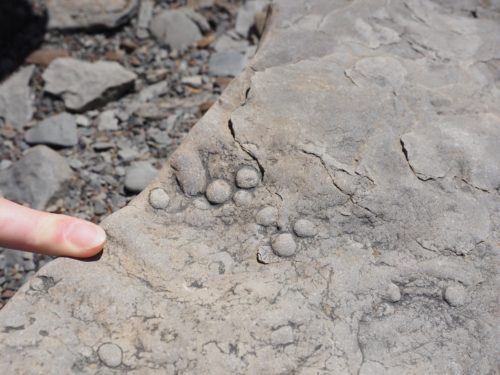Joggins Fossil Cliff Adventure
Today we went to Joggins Fossil Cliffs. Joggins is a UNESCO World Heritage Site. The site claims to have a complete fossil record of life in the Coal Age. Joggins was almost dead center in Pangea at one point and was in the tropics.
Mom had booked this months ago and we took a 4 hour beach tour with a guide. It even included lunch! Our guide was named Sally. She was really awesome! She knew a LOT about the cliffs and the carboniferous era.
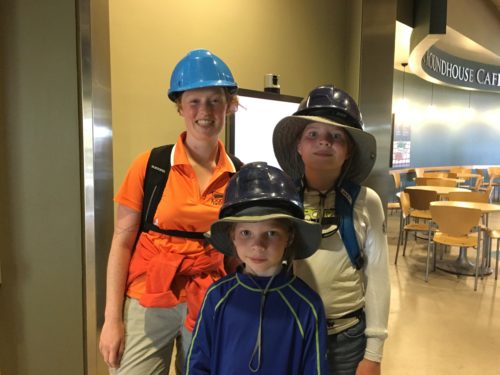
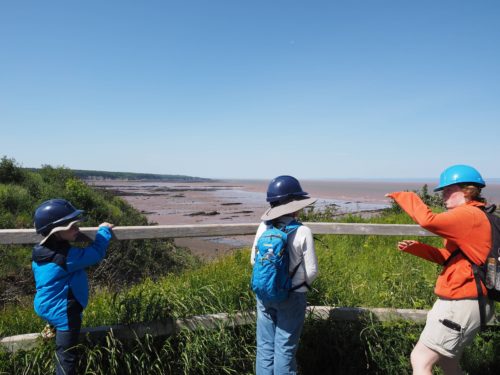
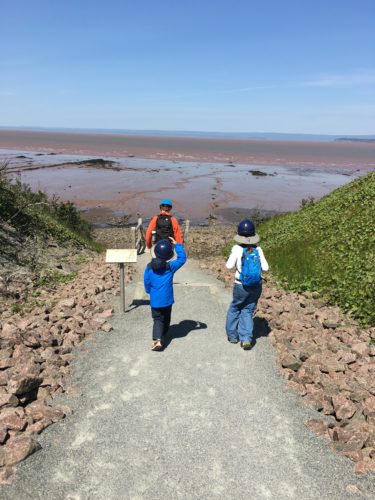
The cliffs are preserved in situ. That means the fossils remain where they were found, like the mammoth site we went to last year. The land is protected so you can not take fossils, rocks of anything else.

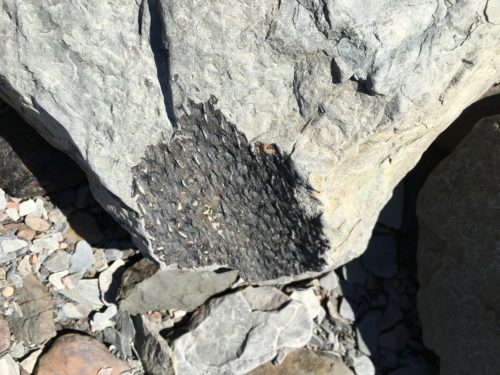
Sir Charles Lyell and Sir William Dawson visited the site when it was a coal mine back in the 1800s. The used dynamite to expose some of the rock. Their finding s are referenced by Charles Darwin in Origin of Species! This is a picture of the area they blew up to study.

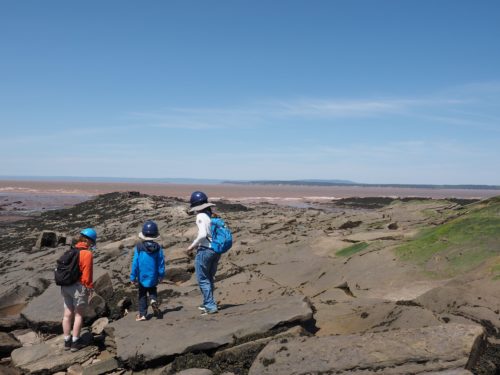
Speaking of coal mines, there is a lot of evidence of the once open mines on the cliff faces. You can see wood from the wharfs, posts from the mind chambers and even a few old entrances. Where the mine entrances were the rocks are reddish from the sulphur and iron that is leaching out now.
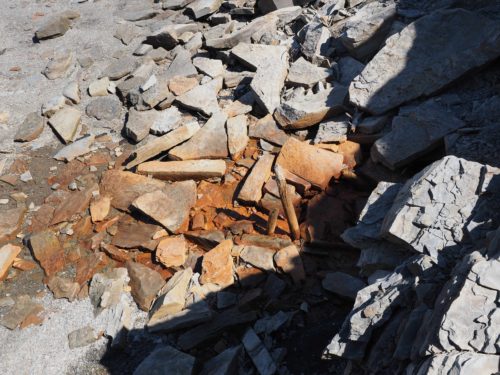
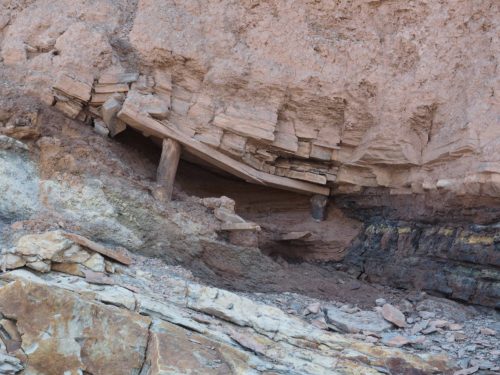
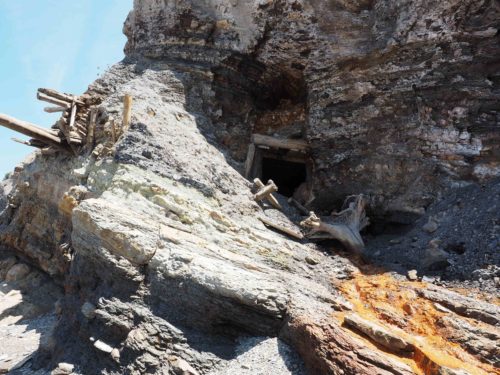
Anyway, back to the fossils. One of the trees that Lyell and Dawson uncovered contained, inside, fossil records of a snail and a lizard. They discovered that the reptile fossil was the first true reptile! Dawson named it Hylonomous lyelli after Mr. Lyell. It is the first record of where animals left the seas and came to land.
Our amazing guide, Sally, took us down the beach for quite a ways. We hunted fossils the entire time. Shockingly, they weren’t hard to find. At least not once we knew what to look for. Mom called me a fossil savant! I found several cool ferns and other plant material. Breighton really liked the fossils of the tree barks.
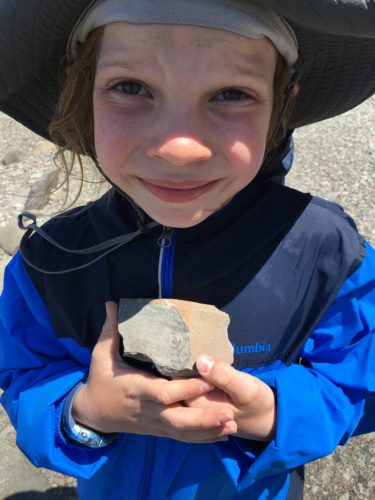
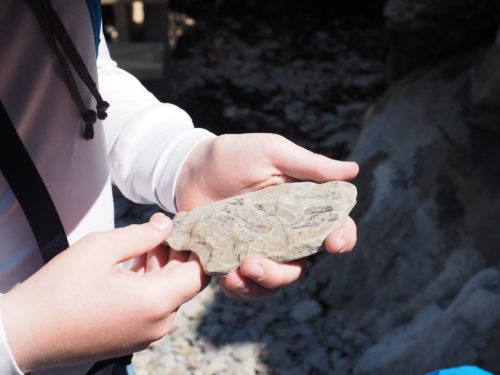
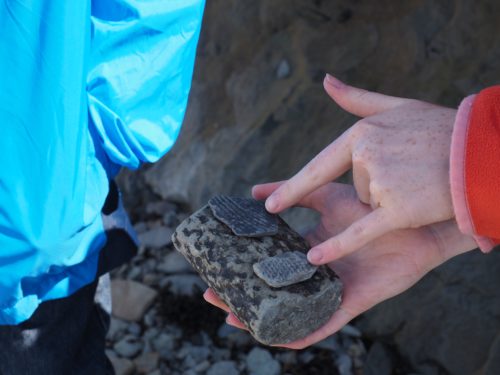
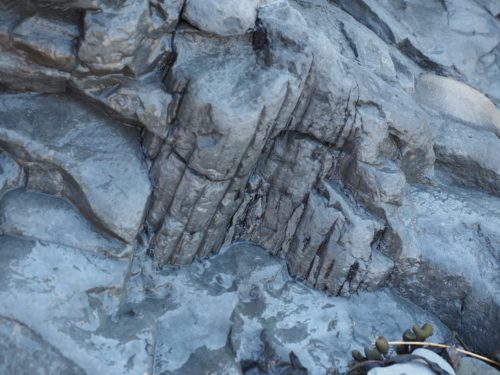

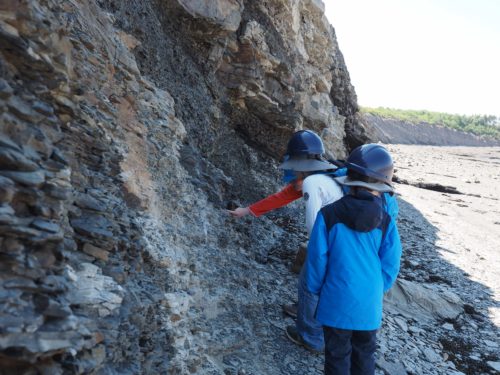


Some of the fossils we found were of lycopsid trees from the wetlands that were once Joggins.


Breighton was impressed with the arthropleura tracks in a few of the rocks. An arthopleura was a millipede from the carboniferous era.
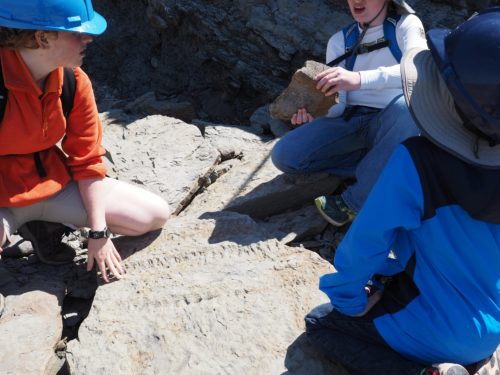
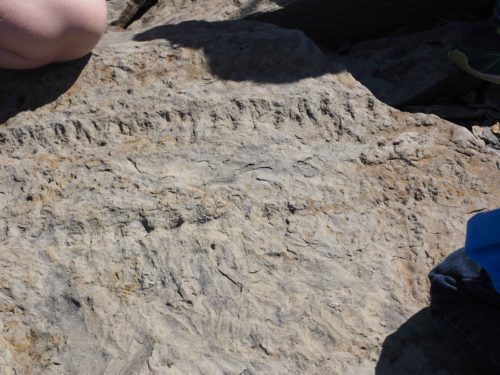
We also found fossils of giant seed ferns, fish and even track marks of a prehistoric lizard of some sort. We found the most of the Calamites fossils. They were a bamboo-like horsetail.
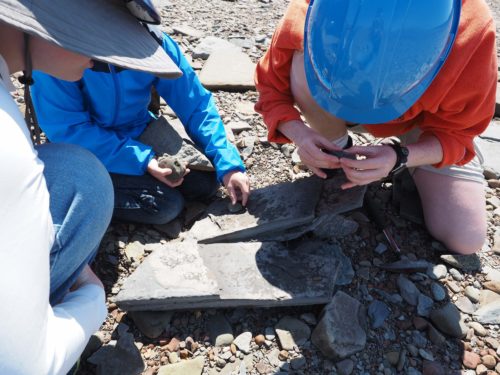
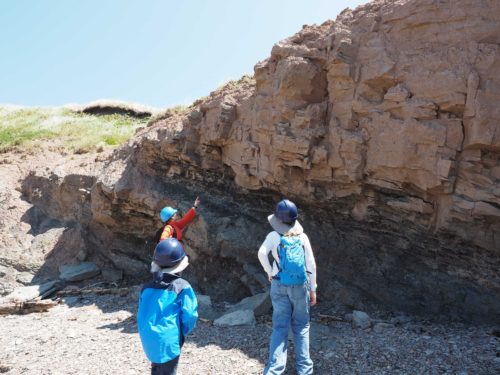
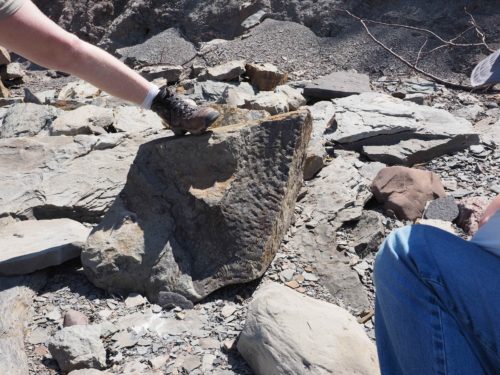
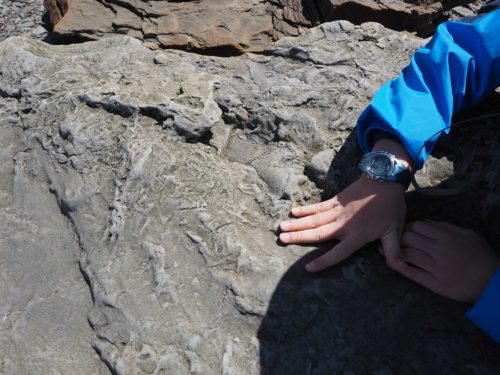
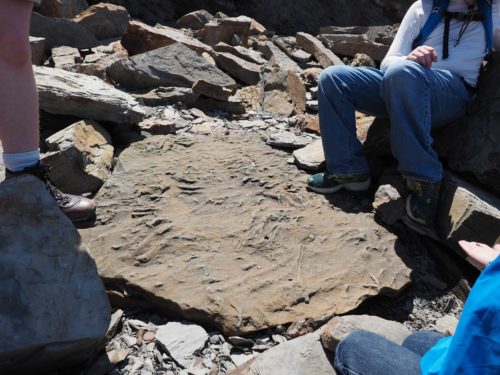
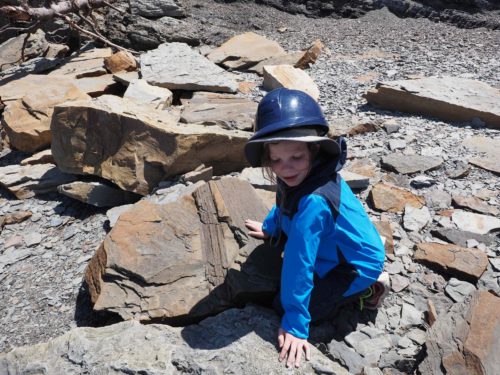
Another were the Lepidodendron, or scale tree. They left very symmetrical patterns in the rocks.
Yet another were root fossils, they were all over! This is B with a very large fossil.
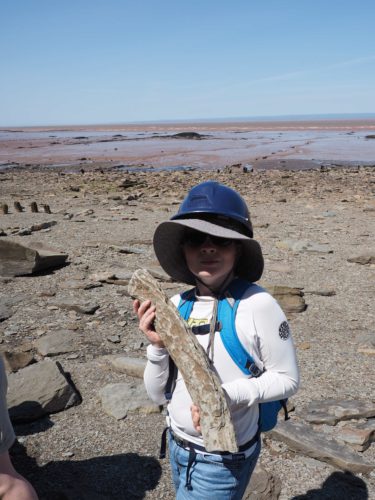
We were simple amazed by all the fossils. We giggles at it but thought fish poop was also quite amazing! We even saw little sharks teeth and fossilized fish (they were so tiny).
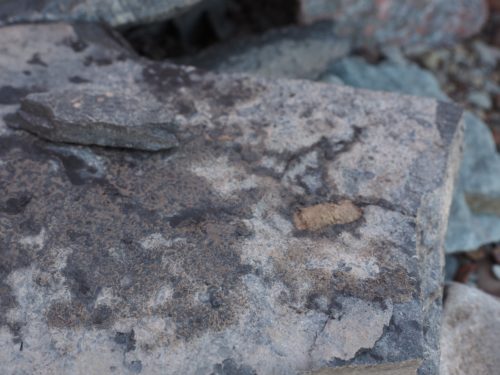

Mom liked the fossilized rain drops.
